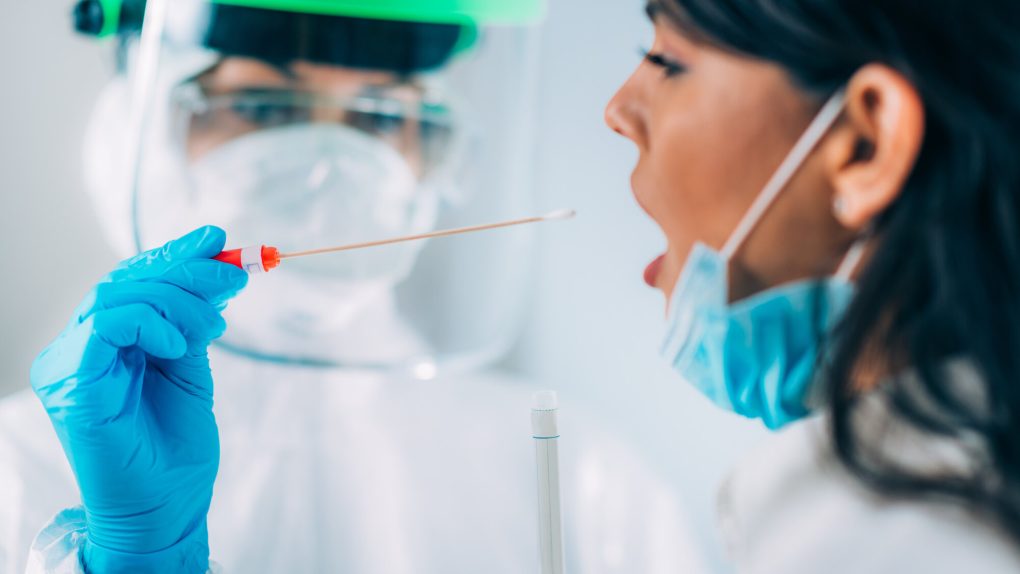- Researchers from Yale think coronavirus PCR tests using saliva might help to predict severe COVID-19 risk.
- They found that patients who developed COVID-19 complications and those who died had much higher viral loads in saliva than those who recovered. Other parameters indicative of severe illness were associated with higher viral loads in saliva as well.
- If the data is accurate, saliva PCR tests might become markers of severe COVID-19 risk and help doctors save more lives.
Two coronavirus vaccines are already available in the US, but supply and logistical issues prevent the drugs from significantly impacting the spread of COVID-19. The virus is still surging in the country, with January having set brand new records for daily cases, hospitalizations, and deaths. The US will continue to suffer for the foreseeable future. Over 38,000 people have died in the first two weeks of the year. According to new CDC data, More than 92,000 more are projected to die in the next three weeks.
While the death rate of COVID-19 is low, the more people get infected, the higher the chances that some will experience life-threatening complications that will require hospitalization. Not everyone will survive the infection, even though doctors are saving more lives than in the early months of the pandemic. But that might change if the findings of a new COVID-19 study turn out to be accurate. Researchers have discovered a correlation between the quantity of virus in saliva and the risk of developing a severe form of the illness.
PCR tests analyze nasal mucus from nasopharyngeal (NP) swabs to determine whether a patient has been infected with the virus. The specimen collection can be unpleasant, but the technology works and delivers accurate results if performed correctly — people can expect negative results if a test is administered too soon after suspected contact with a COVID-19 patient.
Researchers from Yale University have tested both saliva and NP swabs in PCR tests to quantify the number of viral particles in a milliliter of sample. Akiko Iwasaki’s team compared viral loads in saliva and NP from two cohorts of patients, including 154 people infected with the novel coronavirus and 109 healthy controls. They then divided the 154 patients into groups that had low, medium, and high viral loads and compared the symptoms for each group.
The scientists found that the higher the viral load in the saliva PCR test, the more likely it was for patients to develop severe COVID-19, leading to hospitalization and death. High viral loads in saliva samples were also correlated with other signals that indicated a worse COVID-19 outcome. They observed high levels of cytokines and chemokines that appear in response to infections and can lead to tissue damage. People with high viral loads also lost certain cells that help with the immune response like T cells. They had lower levels of antibodies that could neutralize the spike protein and limit the virus’s ability to infect new cells. As a result, the patients were slower to develop a strong immune response to eliminate the virus.
The doctors also found viral loads declined in both saliva and nasal swabs, but not in those who died. Higher viral load in saliva was also associated with COVID-19 risk factors.
The scientists think that saliva might be a better predictor of COVID-19 severity because the viral loads might match what’s happening in the lungs, where the virus does plenty of damage. “Saliva may better represent what is going on in the lower respiratory tract,” Iwasaki said, via ScienceMag. The lungs naturally move mucus up towards the mouth, where it mixes with saliva. Coughing would also lead to the same result.
The study was published in preprint form, with Iwasaki urging others to replicate the results. Her team’s study doesn’t have enough statistical power to determine how much more likely a person with high saliva is to develop severe COVID-19. But if these findings are further refined, they could help public health experts develop new testing and triage protocols in the future.
If higher viral loads are correlated with a higher risk of severe illness, doctors might be able to start treatment a lot sooner in groups at risk. We already know that certain therapies, including plasma transfusion and monoclonal antibodies, must be administered early in the illness to work. Tocilizumab has to be given early after a patient reaches the ICU, according to a new study. Moreover, doctors might want to start steroid therapy like dexamethasone early in the illness to prevent the immune system from going into overdrive.
Moreover, saliva tests might help doctors decide what patients should be sent to ICUs, especially in those places where the number of beds can’t accommodate all COVID-19 cases.








